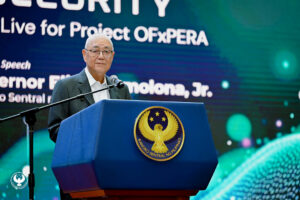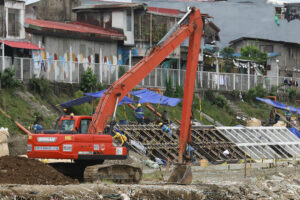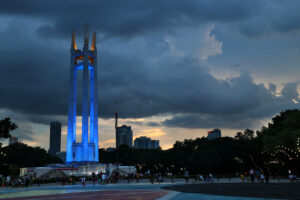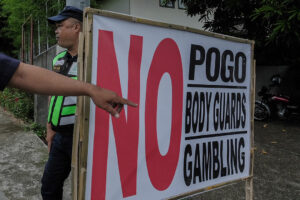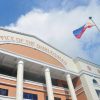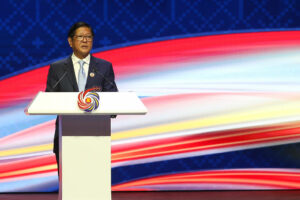By Chloe Mari A. Hufana, Reporter
PRESIDENT Ferdinand R. Marcos, Jr. has signed into law a measure banning all Philippine Offshore Gaming Operators (POGOs), formalizing the government’s policy to shut down the industry over national security and social concerns.
Republic Act (RA) No. 12312 or the Anti-POGO Act of 2025, signed earlier this week, prohibits all offshore and internet-based gambling operations in the country. The measure aims to curb criminal activities linked to POGOs, which authorities have associated with money laundering, human trafficking and cybercrime.
Under the law, all work permits and visas issued to people involved in offshore gaming — including employees of operators, content providers and accredited service firms — are now revoked.
Mr. Marcos signed the measure on Oct. 23, ordering the Department of Labor and Employment to create programs that will help Filipino workers transition after the industry’s shutdown.
The President first announced the total ban during his 2024 state of the nation address, after a series of criminal cases tied to POGOs.
He said offshore gaming hubs had become breeding grounds for money laundering, human trafficking and torture, adding that such operations have “no place in a just and orderly society.”
Mr. Marcos said prohibiting all POGOs would address “many of the problems” facing the country.
“The state recognizes that the maintenance of peace and order, the protection of life, liberty and property, and the promotion of the general welfare are paramount for the meaningful enjoyment of democracy,” according to the law. “The state likewise values the dignity of every human person and guarantees full respect for human rights.”
The Senate passed the measure as Senate Bill No. 2868 on June 9, and the House of Representatives adopted it as an amendment to House Bill No. 10987 two days later.
The law builds on Executive Order No. 74, which Mr. Marcos issued in November 2024 to impose an immediate nationwide ban on offshore and internet gaming operations. The president then cited national security and public safety concerns arising from POGO-linked crimes.
Under RA 12312, first-time offenders face imprisonment of six to eight years and fines ranging from P300,000 to P15 million. Second offenses carry jail terms of up to 10 years and fines up to P30 million, while third offenses are punishable by up to 12 years in prison and fines as high as P50 million.
Public officials found guilty will receive the maximum penalty, while foreign offenders will be deported after serving their sentence and permanently barred from returning to the Philippines.
Meanwhile, the President also signed into law an education reform measure institutionalizing lifelong learning as part of national development efforts.
Mr. Marcos on Oct. 23 signed RA No. 12313, or the Lifelong Learning Development Framework Act, which amends the 2018 Philippine Qualifications Framework Act.
The law expands the mandate of the Philippine Qualifications Framework-National Coordinating Council and seeks to embed continuous learning across all sectors of society.
Under law, the council must craft a national master plan to promote lifelong learning nationwide. Cities, municipalities, and villages may be designated as “learning communities” based on their performance in key education and training indicators.
The framework promotes functional literacy, inclusive education and community-based learning, while strengthening workplace-based training through collaboration with industry and other stakeholders. It also calls for greater use of digital and modern learning technologies, quality assurance in education and the promotion of a culture of lifelong learning.
To improve coordination, the Departments of Trade and Industry and Department of Interior and Local Government have been added as members of the council.
Within six months of the law’s effectivity, the council, in coordination with education agencies, industry and local governments, must formulate the national master plan, aligned with the Philippine Development Plan. The plan will be reviewed every five years to reflect evolving labor market and development priorities.





